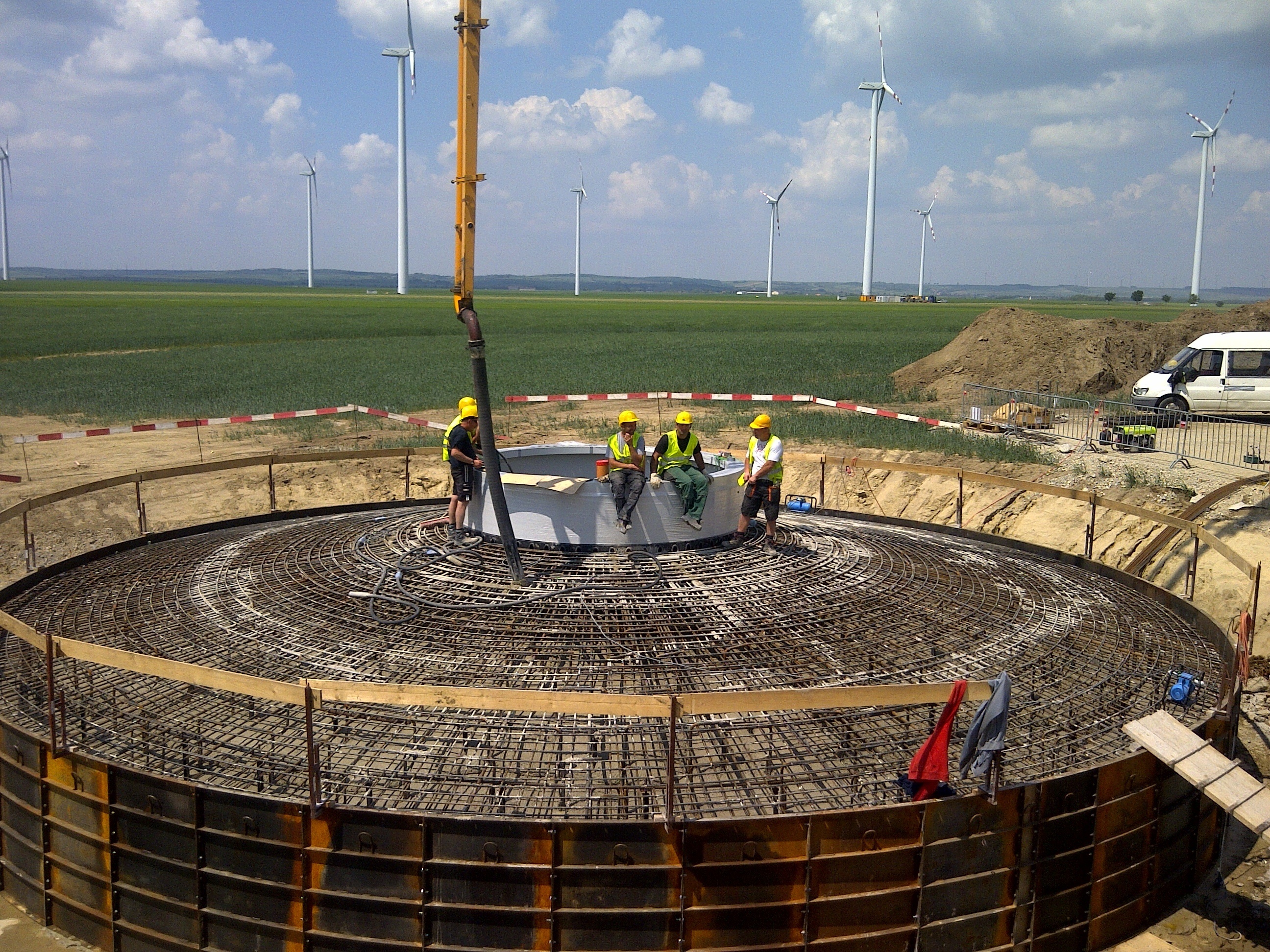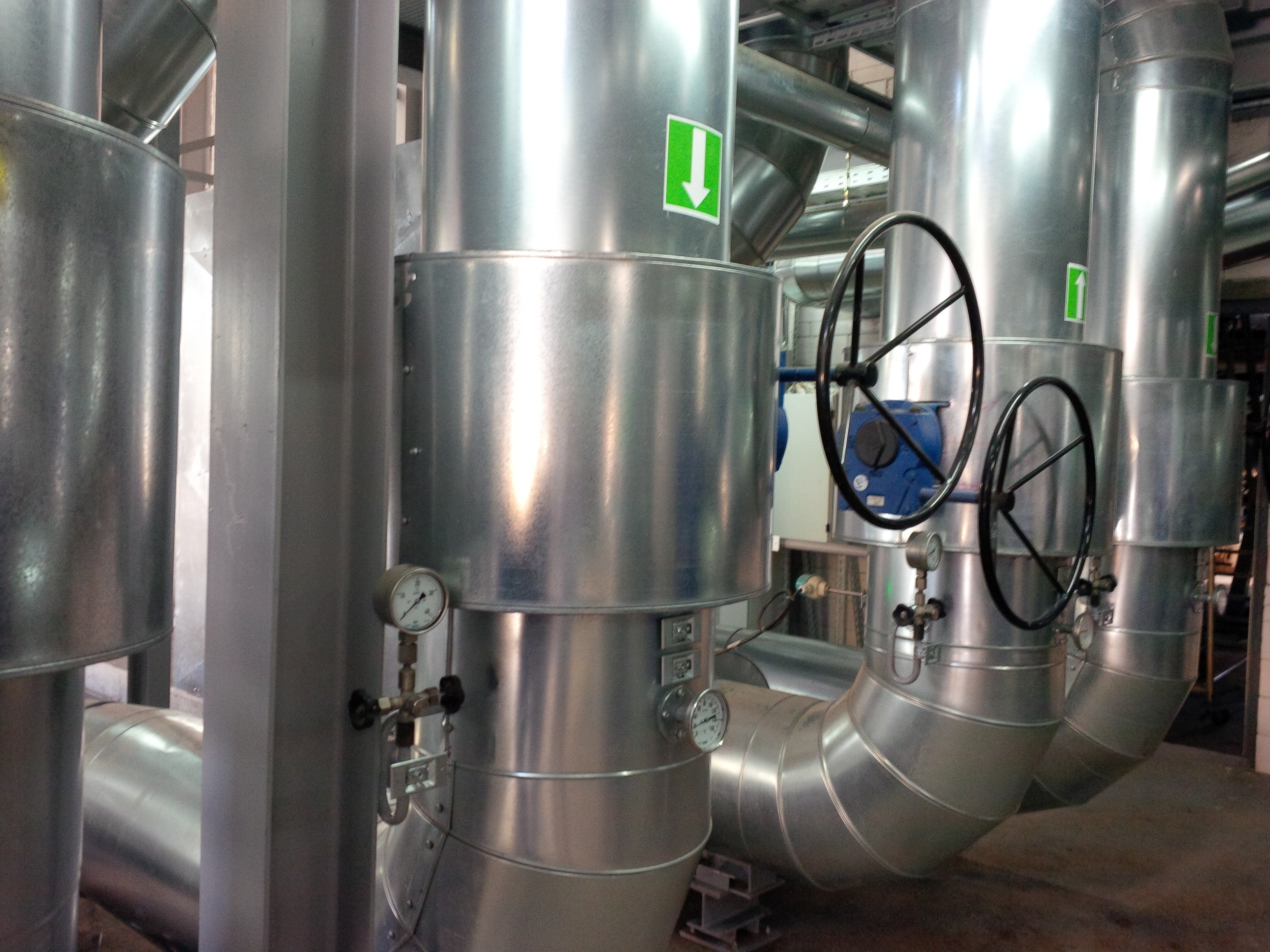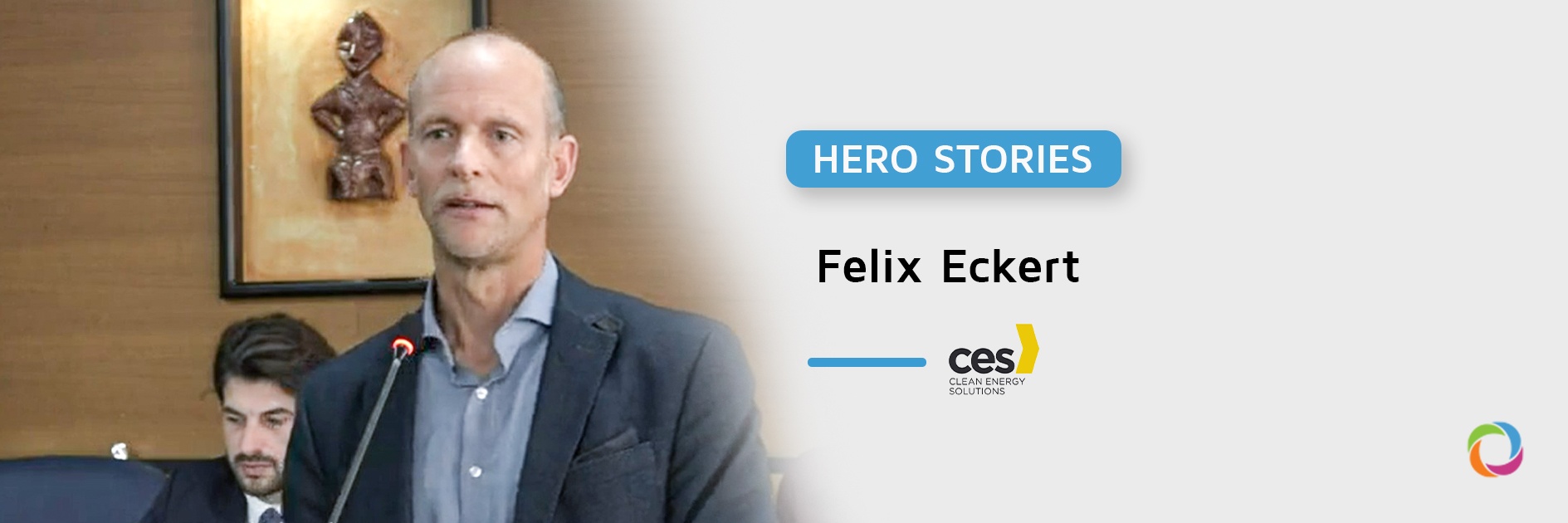“The energy sector has global answers.” This is the way Felix Eckert signposted the content of the latest episode of the “Hero Stories” interviews. “One country after another is embracing the sustainable renewable sector, its attractive challenging solutions and future outcomes,” the Managing Director of CES clean energy solutions added in favor of his argument.
Felix Eckert has succeeded in delivering outstanding projects guided by a true belief in the future of the renewable energy sector. What started as a small department within a company where he was employed has become a business capable of delivering innovative services. CES clean energy solutions is an engineering consultancy company that is a competence centre for energy efficiency and sustainable development. Find out more about CES’ projects in DevelopmentAid’s Hero Stories.
“I wanted to bring change, this is how I ended up in the engineering sector. After working for several companies, I had the chance to develop a small department responsible for energy-related projects within a consulting firm in Austria. The department started to grow, the portfolio became more extensive. Step by step, our activity took the form of an independent company, CES clean energy solutions, which has about 30 professionals involved in implementing ambitious projects.”
The story of CES clean energy solutions is rooted in a promising idea that connected several stakeholders willing to embrace cutting-edge technologies to bring tomorrow’s solutions to the table.
“We are collaborating with governments, various clients, international development banks such as the World Bank, the Austrian Development Bank, International Finance Corporation, etc. We are working predominantly with transition markets. The projects we implement are mainly in South-Eastern Europe, Central Asia, and the Western Balkans. Currently, we are working with huge projects, involving investments of around €45 – 50 million. The politicians, the stakeholders do register interest in changing things. This is the proper time to develop the energy sector.”

The managing director of CES clean energy solutions did not hesitate to provide a solid example of good practices that have been adopted and adjusted to the realities of various countries.
“Albania has models of energy projects implemented. The country’s geographical location offers a series of advantages the stakeholders decided to exploit. Hydropower has already become a reality. They are almost 100% renewable. To be honest I see very interesting dynamics in the sector. In the last few years, these countries have adjusted their policies and stirred things up. We elaborated a lot of studies within our projects that were successfully realized.”
Committed to pushing the boundaries of understanding the importance of new technologies, Felix Eckert has been trying to convince even the most skeptical to begin the migration to energy efficiency solutions.
“Several years ago, I understood the potential of the solar district heating plants originated in Denmark to produce energy and match the population’s heat demands. It was obvious these technologies would be taken on by other countries as well. Since 2012, I have been working in the Balkans, in Kosovo, Pristina. I started to persuade companies to recognize the wide range of opportunities they could benefit from by installing solar district heating plants since Kosovo enjoys better weather conditions than Denmark in terms of producing renewable energy and storing heat. At the very beginning what I listened to were messages like “there is nothing for us”, “this technology is for you, for Europeans”. I tried to convince them time and time again by inviting them to conferences, explaining in detail what their future could look like. In the end, years later, companies and international development banks understood the advantages of renewable energy projects. Now one country after another is embracing the sustainable renewable sector.”

The unprecedented advances in the energy sector have given the world some attractive perspectives. The solar heating plants can also compete with fluctuating gas prices and stabilize the cost of energy production. Using the best technologies available seems to be the only feasible solution.
“We completed some very interesting projects a few years ago in the United Arab Emirates. We succeeded in creating a very complex building and give it the unique shape of a snake. At that moment, to design the Sheikh Zayed Desert Learning Center, we made sure we chose the most efficient technology available at that time. The Desert Learning Center showcases the opportunities of architectural design to keep energy consumption down for cooling.”

Felix Eckert can easily list several sustainable projects and explain the innovative approach his team has been responsible for.
“Building Information Modelling (BIM) is the future. We understood that BIM has the ability to enforce sustainability. This is a new type of technology that enables creating and managing information on a construction project across the project lifecycle. Managing the data allows us to make informed decisions based on information derived from the model. We started to establish this kind of design methodology besides the resistance. We trained people to use BIM knowledge. Years later everybody understood the necessity of BIM and started to follow its principles.”
Talking about reducing the ecological footprint of buildings, our interview brought to the table the concept of passive houses.
“I am sitting right now in a passive house. I built this construction eleven years ago. I think it says everything. The passive house is a kind of philosophy. I used the best the market could provide in those days to build an energy-efficient construction. In three weeks, this won’t be a passive house anymore but an energy-plus house. By replacing some necessary technologies and improving the system, this house will produce more energy than it consumes. The total energy balance will be positive.”
Being guided by the idea of the environmental footprint, the engineers are constantly working on improving the technologies, Felix underlined.
“If we waited for these technologies to be 100% perfect, we would never implement these projects. All the developers, whatever the type of industry, are engaged in improving technology step by step so we can use the best available at the time. Of course, this can be improved, but we cannot wait to have perfect technologies. A good example in this respect is related to electric cars. Of course, they have their pros and cons. The pros are clear – the ability to drive 100% renewable, but not every country has the capacity to produce this electricity. If people and politicians did not support this sector, nobody would build electric cars, nobody would buy electric cars, this sector would never have developed. This sector is growing and growing. A lot of manufacturers produce electric cars, they improve the technology, they improve the efficiency. Without it starting, without supporting this market to grow, nobody would have been interested in finding new solutions.”
Despite the huge advances observed in the sector, some countries have fallen behind in adapting future solutions.
“The progress depends on the country. Some countries are more active, some are less. There are actors that are not interested in embracing energy efficiency technologies, some of them don’t have any possibilities. The renewable energy is not the first priority, but the world average of the share of renewable energy is not enough. Those countries who can afford to switch to renewable energy countries should fast forward as soon as possible. I am convinced that the renewable energy sector is the only future we have, everything that has been done in the area of renewable energy is about sustainability. Renewable energy supports sustainability.”


